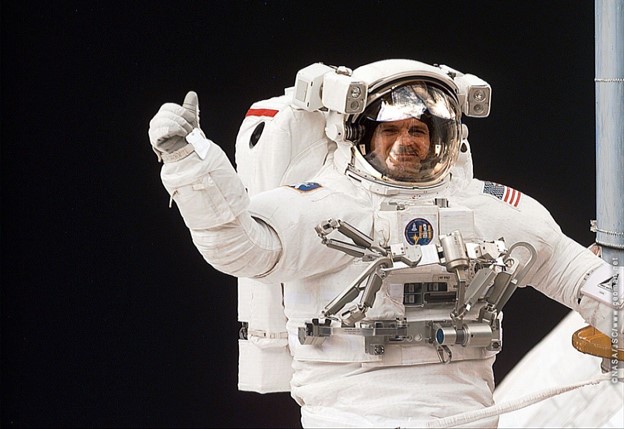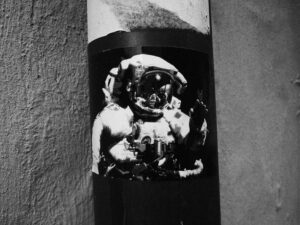Astronauts Lost in Space Forever: What’s the Death Toll of Exploration

Today, satellite launches no longer surprise anyone and, judging from NASA’s and private companies’ ambitions, manned missions may soon cease to be something extraordinary, too. But the road to orbit has been paved with many failures — often, with the lives of astronauts lost in space forever. And while technically, no one has literally been lost, astronauts did die — both on missions and while preparing for them. Today, we will discuss how many people have paid the ultimate price and try to determine how dangerous space exploration truly is.
How many astronauts have gone to space?
One cannot discuss the death toll of space missions without considering how many people have been in space in the first place. Even today, after sixty years of manned missions, this figure does not reach a thousand people. Since 1961, around 600 professional astronauts have flown into space as part of their missions. Recently, roughly two dozen orbital tourists have been added to this number. But how many people have died on missions? Among tourists, none. Unfortunately for professional astronauts, not all were so lucky — there are several astronauts who died in space missions, both during flight and while preparing for it. Below, we discuss only the most notable incidents that shook the international public.
How many astronauts have died in space exploration?

According to space news website Orbital Today, a total of 19 astronauts died in space missions, and four more have lost their lives on the ground while preparing for flight. Here, we should note that not all of these 19 astronauts literally died in space above the Karman line. Technically, most astronaut lives have been lost in our ‘home’ atmosphere — either upon crashing to the ground or during descent.
Here is how the space accident disaster list looks in the right order:
Apollo 1:
the first lives were lost while preparing for a space mission. In January 1967, a fire broke out on the Apollo 1 launch site, claiming the lives of three astronauts who got trapped in the vehicle.
Soyuz 1:
the second tragedy took place later in 1967, this time in the USSR. On 23 April, astronaut Vladimir Komarov was returning from an otherwise successful mission, but the capsule parachute system failed on the descent. This was the first official life lost in space, even though the tragedy technically happened when the capsule hit the Earth at 50 m/s speed.
Soyuz 11:
another Soyuz tragedy claimed the lives of three astronauts in June 1971. This accident also happened on the descent — this time, because of cabin depressurisation. At the time, pressurised spacesuits weren’t part of obligatory equipment, but they have become one since the Soyuz 11 accident because all three astronauts suffocated on their return to Earth.
Challenger:
perhaps the loudest tragedy when seven astronauts lost their lives at the very start of their mission in 1986, as NASA’s Challenger Space Shuttle exploded in the air 73 seconds after the launch. What’s worse, this incident was streaming on live TV and was witnessed by millions of viewers.
Columbia:
the second and last shuttle disaster took place in February 2003, and soon enough, this whole program was discontinued. This time, the tragedy occurred on the descent, killing the entire crew of seven astronauts returning from an otherwise successful mission.
These tragedies sum up to 18 mission deaths, but what about the 19 astronauts we mentioned earlier? Has any astronaut ever been lost in space? No, but there was another tragedy that hasn’t received such mass media coverage as the shuttle disaster. In 2014, Virgin Galactic pilot Michael Elsbury lost his life during a SpaceShipTwo test flight because, unlike his co-pilot, he failed to eject from a crashing plane in time.
And while some may argue that this is not a space mission death, the vehicle was in the air, and it was carrying out tests for future orbital flights. So, we believe it does deserve a mention on this list — after all, Virgin Galactic is flying tourists to space now, and it would be unfair to forget people who lost their lives trying to make this dream a reality.
As you can now see, the death statistics of space deaths are not too high; however, it does not make it any less dramatic. Now that we are preparing for a new stage in space exploration, possibly even colonisation, another important question comes to mind — what happens if an astronaut gets lost in space? As in, literally lost?
The good news is that such a scenario is very unlikely, considering our communication tech progress. Besides, private companies leading the space race these days are rigorously testing their equipment. Some deviations are hard to avoid, of course — this June, two astronauts stuck in space in a Boeing Starliner capsule. However, this is but a temporary delay and both astronauts are safe aboard the ISS. Nothing is lost — only their scheduled return back to earth is postponed. Such incidents did happen before, but they are hardly any reason to sound the alarm. And if we’re lucky, it will remain this way.



